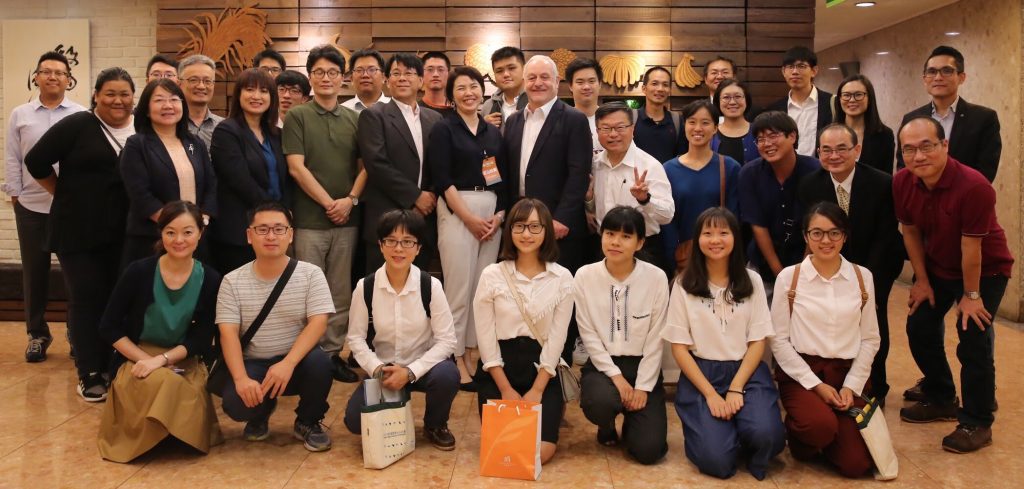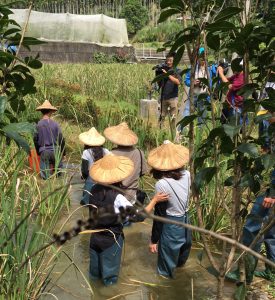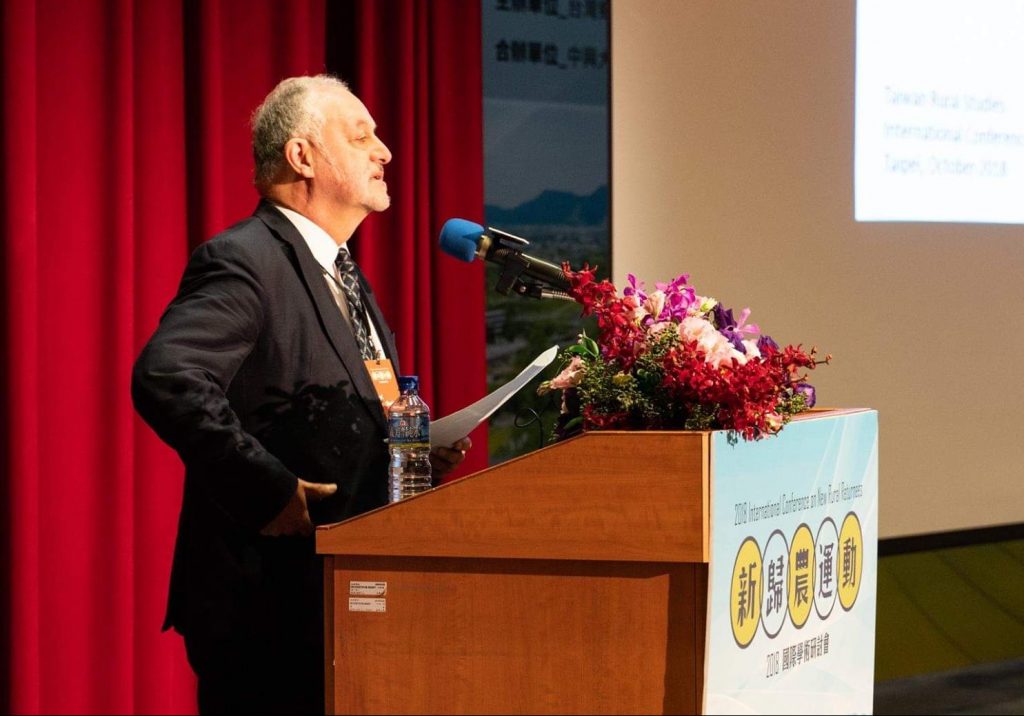Professor Mark Shucksmith, Director of Newcastle University’s Institute for Social Renewal, discusses his recent visit to Taiwan, where he was a guest of the Taiwan Rural Sociology Society.
 Last month I visited Taiwan, as a guest of the Taiwan Rural Sociological Society, to speak at an international conference in Taipei, to lecture at the National Taiwan University, and to visit rural communities and hear what they were doing. I also met the Minister of Agriculture, Mr Lin Tsung-hsien, and rural champion, Dr Frida Tsai MP. Before my visit I read that the people of Taiwan are renowned for their kindness, and I can confirm this: everyone I met was extraordinarily kind and thoughtful. But I also learned from my visit, I hope, so here are a few reflections.
Last month I visited Taiwan, as a guest of the Taiwan Rural Sociological Society, to speak at an international conference in Taipei, to lecture at the National Taiwan University, and to visit rural communities and hear what they were doing. I also met the Minister of Agriculture, Mr Lin Tsung-hsien, and rural champion, Dr Frida Tsai MP. Before my visit I read that the people of Taiwan are renowned for their kindness, and I can confirm this: everyone I met was extraordinarily kind and thoughtful. But I also learned from my visit, I hope, so here are a few reflections.
The concept of networked rural development is well known in Europe (now repackaged as Smart Villages). Taiwan, I learned, has also started to pursue this approach, with government support since 2010. A rural regeneration programme offered funding to villages and community development workers, usually under the name of community development associations, at least in its first phase. A second phase from 2017 has provoked some controversy by restricting payment for people’s time and requiring voluntary effort instead. The government recently announced a major research programme, Social and Cultural Survey of Rural Taiwan, to further inform its enabling state role. At community level I saw examples of asset-based community development and social innovation (an eco-village, a ‘paper dome’ wedding/tourism venue, authentic Haka cuisine), institutional capacity (a network of agricultural marketing, training and financial services organisations) and learning through networks. It was especially interesting to observe how the networked rural development approach might operate in the context of a weak civil society, hampered by patriarchy and clientelism, and where mistrust exists between villages and government to the extent that rural activists formed a Taiwan Rural Front. Often crisis was the catalyst for rural regeneration efforts, whether earthquake destruction or the impact on farmers of joining the WTO.

I was interested too to discover that attracting and supporting young people to move to villages, often to engage in farming, is a major interest not only in Taiwan but also in Korea and Japan. Indeed the theme of the international conference was ‘new rural returnees’. We heard from numerous young people, not just dissatisfied with urban life but looking for alternatives to neoliberalism incorporating more utopian values and a better work-life balance which left time for family and relationships. Governments sought ways to support these young people to move and pursue their dreams, seeing them as vital to the social sustainability of ageing villages. In one example, a group of young people had formed a cooperative social enterprise to farm with ageing farmers who find it increasingly hard to work their land but could not give up their holdings. Some of these experiences and ideas might resonate also in Britain.

There is indeed an appetite from my hosts and others in Taiwan to compare their experiences with ours in Europe and for us to learn from one another. In a short visit I was only able to gain a very superficial insight into Taiwan’s approach to rural policies and regeneration activities, and there is much more to learn. I encourage colleagues to continue this process of knowledge exchange and dialogue: apart from mutual learning, you will be greeted with great kindness.
